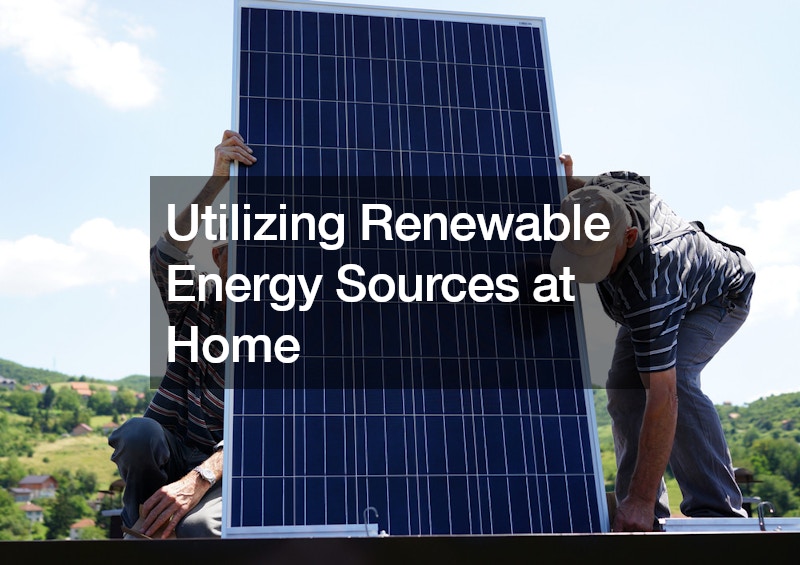Energy Efficient Beginning
Improving your home’s energy efficiency is not only beneficial for the environment but can also lead to significant cost savings on utility bills. With growing awareness of climate change and rising energy costs, more homeowners are seeking ways to make their homes more energy-efficient. Home traders who buy, renovate, and sell homes often prioritize energy efficiency to increase property value and attract environmentally-conscious buyers. This blog will explore various secrets that a home trader uses to enhance energy efficiency, which you can also implement to make your home more comfortable and eco-friendly.

1. Understanding Home Energy Efficiency Basics
Energy efficiency in homes involves using less energy to perform the same tasks, reducing energy waste, and lowering energy costs. Understanding the basics of home energy efficiency is the first step toward creating a more sustainable living environment. By incorporating simple changes and upgrades, homeowners can significantly improve their home’s energy performance. Key areas to focus on include insulation, windows, heating, and cooling systems. Home traders often emphasize these aspects to maximize a property’s energy efficiency and market appeal.
For property management services, understanding home energy efficiency can also translate into better tenant satisfaction and lower maintenance costs. Effective energy management practices can help identify areas where energy is wasted, leading to strategic improvements that benefit both the property owner and the occupants. Whether you’re managing a single property or multiple units, adopting energy-efficient practices can result in long-term savings and increased property value. A home trader knows that energy-efficient properties are more attractive to buyers, making these improvements a smart investment.
2. Conducting a Comprehensive Home Energy Audit
A home energy audit is a thorough assessment of your home’s energy use and efficiency. Conducting a comprehensive home energy audit helps identify areas where energy is wasted and provides a roadmap for making improvements. This process typically involves inspecting insulation, checking for air leaks, evaluating heating and cooling systems, and reviewing energy bills. Home traders often start with an energy audit to understand the current state of a property and determine the most effective upgrades to enhance energy efficiency.
Commercial water treatment companies can play a crucial role in a comprehensive home energy audit by ensuring that water systems are optimized for efficiency. During the audit, it’s essential to evaluate the performance of water heaters and plumbing systems, as inefficient water systems can significantly impact overall energy use. By addressing issues such as leaks, inefficient appliances, and outdated systems, homeowners can reduce water waste and energy consumption. A home trader will often collaborate with a commercial water treatment company to ensure that all aspects of a property are as efficient as possible, making the home more attractive to potential buyers.
Home water treatment is crucial for ensuring the health and safety of your household. By treating water at home, you can remove contaminants such as bacteria, viruses, heavy metals, and chemicals that can be harmful if ingested. Clean water is essential for drinking, cooking, and bathing, and it can also protect your plumbing system from damage caused by impurities. Home water treatment systems, like filters and softeners, improve the taste and quality of water, contributing to better overall health. Additionally, having a reliable water treatment system can increase the value of your home, making it a smart investment for both current living conditions and future resale potential.

3. Insulating Your Home for Optimal Efficiency
Proper insulation is crucial for maintaining a comfortable and energy-efficient home. Insulation helps keep warm air inside during the winter and cool air inside during the summer, reducing the need for excessive heating and cooling. This leads to lower energy bills and a more sustainable home environment. There are various types of insulation available, including fiberglass, foam, and cellulose, each with its own set of benefits. A home trader can often prioritize insulation improvements to enhance a property’s energy efficiency and marketability.
A basement drainage system can significantly impact the effectiveness of your home’s insulation. Moisture can compromise insulation materials, reducing their ability to retain heat or cool air. Ensuring that your basement has a proper drainage system can prevent water damage and maintain the integrity of your insulation. Home traders understand the importance of addressing both insulation and moisture control to achieve optimal energy efficiency. By installing a reliable basement drainage system, you can protect your insulation and enhance your home’s overall energy performance.
4. Upgrading to Energy-Efficient Windows and Doors
Windows and doors are critical components of a home’s energy efficiency. Energy-efficient windows and doors are designed to minimize heat transfer, keeping your home warmer in the winter and cooler in the summer. Upgrading to double or triple-pane windows with low-E coatings can significantly reduce energy loss. Similarly, installing doors with proper insulation and weatherstripping can prevent drafts and improve comfort. Home traders often invest in high-quality windows and doors to boost a property’s energy efficiency and curb appeal.
Window services are essential when upgrading to energy-efficient windows and doors. Professional installation ensures that the windows and doors are fitted correctly, preventing air leaks and maximizing their efficiency. A home trader frequently works with window services to ensure that their properties benefit from the latest advancements in window technology. By choosing energy-efficient windows and doors and having them professionally installed, homeowners can reduce their energy bills and create a more comfortable living environment.

5. Implementing Smart Thermostat Technology
Smart thermostats are a game-changer for home energy efficiency. These devices allow homeowners to control their heating and cooling systems remotely, optimizing energy use based on their schedules and preferences. Smart thermostats can learn your habits and adjust temperatures automatically, ensuring comfort while reducing energy waste. A home trader often incorporates smart thermostat technology into their properties to enhance energy efficiency and attract tech-savvy buyers.
For AC repair services, integrating smart thermostats can improve the overall performance and efficiency of cooling systems. A well-maintained AC unit paired with a smart thermostat can lead to significant energy savings and a more comfortable home. Home traders recognize the value of combining advanced technology with regular maintenance to optimize energy efficiency. By investing in smart thermostats and ensuring their AC systems are in top condition, homeowners can enjoy a more efficient and cost-effective cooling solution.
6. Choosing Energy-Efficient Lighting Solutions
Lighting is a significant aspect of home energy consumption, and switching to energy-efficient lighting solutions can greatly reduce your electricity bills. LED bulbs, for instance, use up to 75% less energy than traditional incandescent bulbs and last significantly longer. Additionally, using smart lighting systems that can be controlled remotely or set on timers can further optimize energy use. A home trader often replaces old lighting fixtures with energy-efficient alternatives to improve the property’s energy performance and appeal to eco-conscious buyers.
A local embroidery company can benefit from energy-efficient lighting solutions in their operations as well. By using LED lighting in workshops and display areas, these businesses can reduce their energy costs while providing a well-lit environment for their staff and customers. Home traders understand that efficient lighting is not only beneficial for residential properties but also for commercial spaces. By adopting energy-efficient lighting, businesses and homeowners alike can contribute to a more sustainable future while enjoying reduced energy expenses.
7. Optimizing Heating and Cooling Systems
Heating and cooling systems are among the largest energy consumers in a home. Optimizing these systems is crucial for achieving energy efficiency. Regular maintenance, such as cleaning filters and inspecting ducts, ensures that the systems operate efficiently. Upgrading to energy-efficient HVAC units can also result in significant energy savings. A Home trader can often focus on optimizing heating and cooling systems to enhance a property’s energy efficiency and increase its market value.
Septic system inspection is an essential part of maintaining an efficient home. A well-functioning septic system can impact the overall efficiency of your heating and cooling systems by ensuring proper waste management and preventing potential issues that could lead to system strain. Home traders often include septic system inspections as part of their comprehensive property assessments to ensure that all aspects of the home contribute to optimal energy efficiency. By keeping septic systems in good condition, homeowners can avoid costly repairs and maintain a more efficient and comfortable living environment.

8. Utilizing Renewable Energy Sources at Home
Incorporating renewable energy sources into your home is an effective way to reduce your carbon footprint and lower energy bills. Solar panels, for instance, can provide a substantial portion of your home’s energy needs, especially in sunny climates. Wind turbines and geothermal systems are other options for generating renewable energy. A home trader will often invest in renewable energy solutions to make their properties more attractive to environmentally-conscious buyers and increase their resale value.
Local garage door repair services can support the integration of renewable energy systems in homes. For example, solar panels can be installed on garage roofs, making it essential to ensure that garage doors and structures are in good condition to support these installations. Home traders understand the importance of a holistic approach to energy efficiency, which includes addressing any structural issues that could affect the performance of renewable energy systems. By collaborating with local garage door repair services, homeowners can ensure that their properties are well-prepared for renewable energy upgrades, contributing to a more sustainable and energy-efficient home.
9. Sealing Gaps and Cracks for Better Efficiency
One of the simplest yet most effective ways to improve your home’s energy efficiency is by sealing gaps and cracks. Air leaks can significantly increase heating and cooling costs by allowing conditioned air to escape and outside air to enter. Common areas for leaks include windows, doors, and around plumbing and electrical outlets. Using caulk, weatherstripping, and expanding foam can help seal these gaps and improve your home’s overall efficiency. Home traders often make these small yet impactful improvements to enhance the energy performance of a property.
A frameless shower door can contribute to a more energy-efficient home by preventing drafts and maintaining a consistent temperature in your bathroom. While it may seem like a minor detail, a well-sealed bathroom can reduce the amount of energy needed to heat or cool adjacent rooms. Home traders understand that attention to detail, such as installing frameless shower doors, can make a significant difference in a home’s energy efficiency. By addressing these small areas, homeowners can create a more comfortable and energy-efficient living space.
10. Adopting Energy-Saving Habits and Practices
While upgrades and improvements are important, adopting energy-saving habits and practices is equally crucial for maintaining an energy-efficient home. Simple actions like turning off lights when not in use, unplugging electronics, and using energy-efficient appliances can lead to substantial energy savings over time. Educating household members about these practices can help create a culture of energy efficiency within the home. Home traders often highlight the importance of these habits to potential buyers, demonstrating how they can maintain the efficiency of their new home.
Pet boarding facilities can also benefit from adopting energy-saving practices. For example, using energy-efficient lighting, optimizing HVAC systems, and implementing water-saving measures can reduce operational costs and create a more sustainable environment for the animals. A home trader can recognize that these practices are not only beneficial for residential properties but can also be applied to commercial spaces. By adopting energy-saving habits, both homeowners and business owners can contribute to a more sustainable future and enjoy reduced energy expenses.
Energy Efficient Ending
Improving your home’s energy efficiency involves a combination of upgrades, maintenance, and adopting energy-saving practices. From conducting comprehensive energy audits to utilizing renewable energy sources, there are numerous strategies to enhance your home’s energy performance. A home trader can understand the value of these improvements, as they not only increase a property’s marketability but also contribute to a more sustainable and cost-effective living environment. By following the secrets and tips shared in this blog, you can take significant steps toward making your home more energy-efficient, reducing your environmental impact, and enjoying the benefits of lower energy bills. Whether you’re a homeowner looking to improve your current residence or a home trader seeking to enhance the value of your properties, these energy efficiency strategies are essential tools for achieving your goals.





